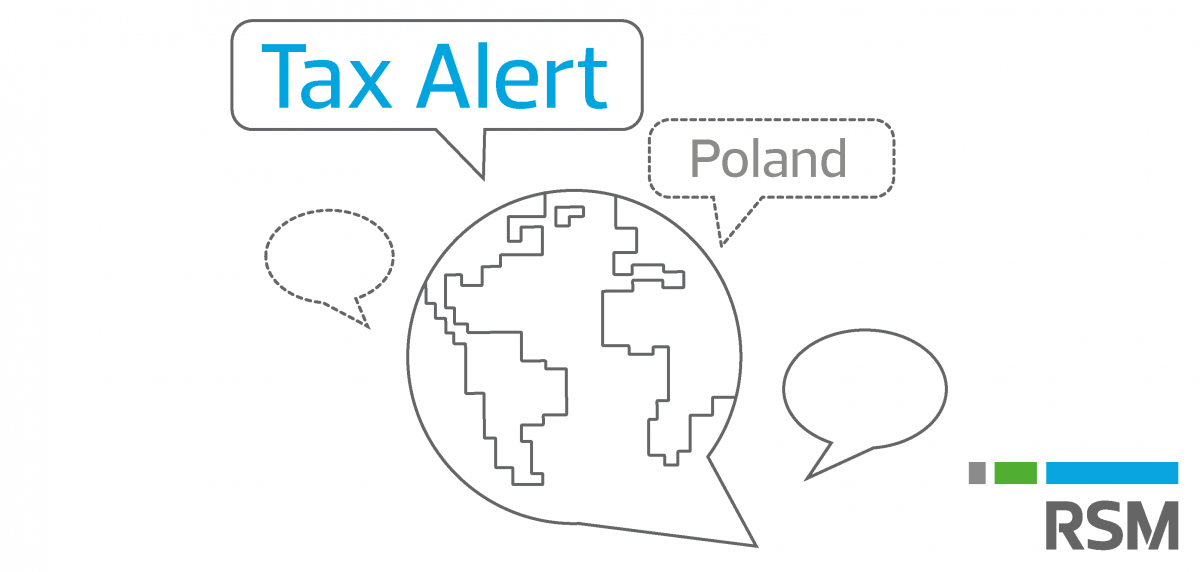
9 January 2023
Karolina BARTKOWIAK-DUDZIK
The information published by Poland's Ministry of Finance shows that the number of tax and customs controls is successively increasing. In the first half of 2022 there have been almost two thousand of such controls – it is almost 300 more than in the same period of 2021.

17 November 2022
Ilona KOZIEŁ, Elżbieta MAJCHRZAK
According to tax regulations, if our company purchases a vehicle from an EU Member State, it is an intra-community acquisition of goods. This creates additional obligations that we must fulfil as entrepreneurs. And regardless of whether we have decided to buy a used passenger car or a new one, we must prepare a VAT-23 declaration and prepare to pay VAT.

14 November 2022
Ewelina KARLIŃSKA
Recently, the tax offices have been more into withholding tax, which results in a growing number of inspections of how this tax is being settled. Even though new withholding tax regulations have been in force for nearly a year now, they seem to remain quite problematic both for remitters and taxpayers. What appears to be most difficult?

7 March 2022
In one of the episodes of our series “Courts on the side of taxable persons, i.e. an overview of true stories ” we wrote about the instrumental initiation of criminal and fiscal proceedings by tax authorities. Such proceedings are used by the tax office to prevent tax liabilities becoming time-barred. Today we will go to the root of the problem, i.e. we will tell you why the tax authorities must prevent statute of limitations in this way at all. Here are a few words about delaying tax cases.

7 May 2021
Kamila DOBOSZ
Changes concerning transfer pricing in transactions with tax havens, effective as of 1 January 2021, will be challenging for taxpayers. Under the new regulations, there is an obligation to have verify whether transactions where the beneficial owner has its place of residence, registered office or management in a tax haven comply with the arm’s length principle (and it is unclear whether the legislator means the actual owner of our contractor or the cash flow generated as a result of a given transaction, as the regulations fail to specify this). What is more, taxpayers must provide economic justification for their transactions with tax havens.

22 March 2017
Tomasz BEGER
The tax authority, to apply the 50% punitive rate for the upward adjusted profit between related entities, has only 3 years after the end of the calendar year when the tax liability arose. After that time, until the expiry of 5 years from the end of the calendar year when the tax liability reached its maturity, it may only apply the basic rate of 19%. Such conclusions can be drawn from the judgment of the Supreme Administrative Court of 13 October 2016, ref. No. II FSK 2288/14.

9 February 2017
Sylwia KOZŁOWSKA
The issue of changes in transfer pricing has been discussed for a long time now. The pompously announced revolution in transfer pricing has finally occurred – from the beginning of 2017, new regulations for determining the entities obliged to prepare tax documentation have been introduced along with a different than before method of qualifying the transactions that should be included in the transfer pricing documentation.
1 June 2015
Sylwia KOZŁOWSKA
Undoubtedly, management of each related entity has to answer a question of whether to prepare tax documentation or choose to rely on luck instead, and a chance of not being summoned by the tax office to submit it. Or, if you have already decided to prepare the documentation, when to do it – during the tax year or after it finishes?
Currently, almost each and every income tax control requires submitting TP documentation. One of the most committed errors between 1 January 2013 and 1 July 2014, in the case of reduction of tax liabilities exceeding PLN 1,000, was lack of TP documentation[1]. This year, tax documentation will also constitute one of tax control priorities (vide The National Action Plan of Tax Administration for 2015).
3 April 2015
Mateusz CHŁOSTA
The obligation to prepare tax documentation in the case of transactions by/with partnerships has been a source of confusion among taxpayers for a quite long time. To prepare or not to prepare? That’s the question! – such a paraphrase of the famous Shakespearian quote clearly illustrates the dilemma that many taxpayers have had to face.






